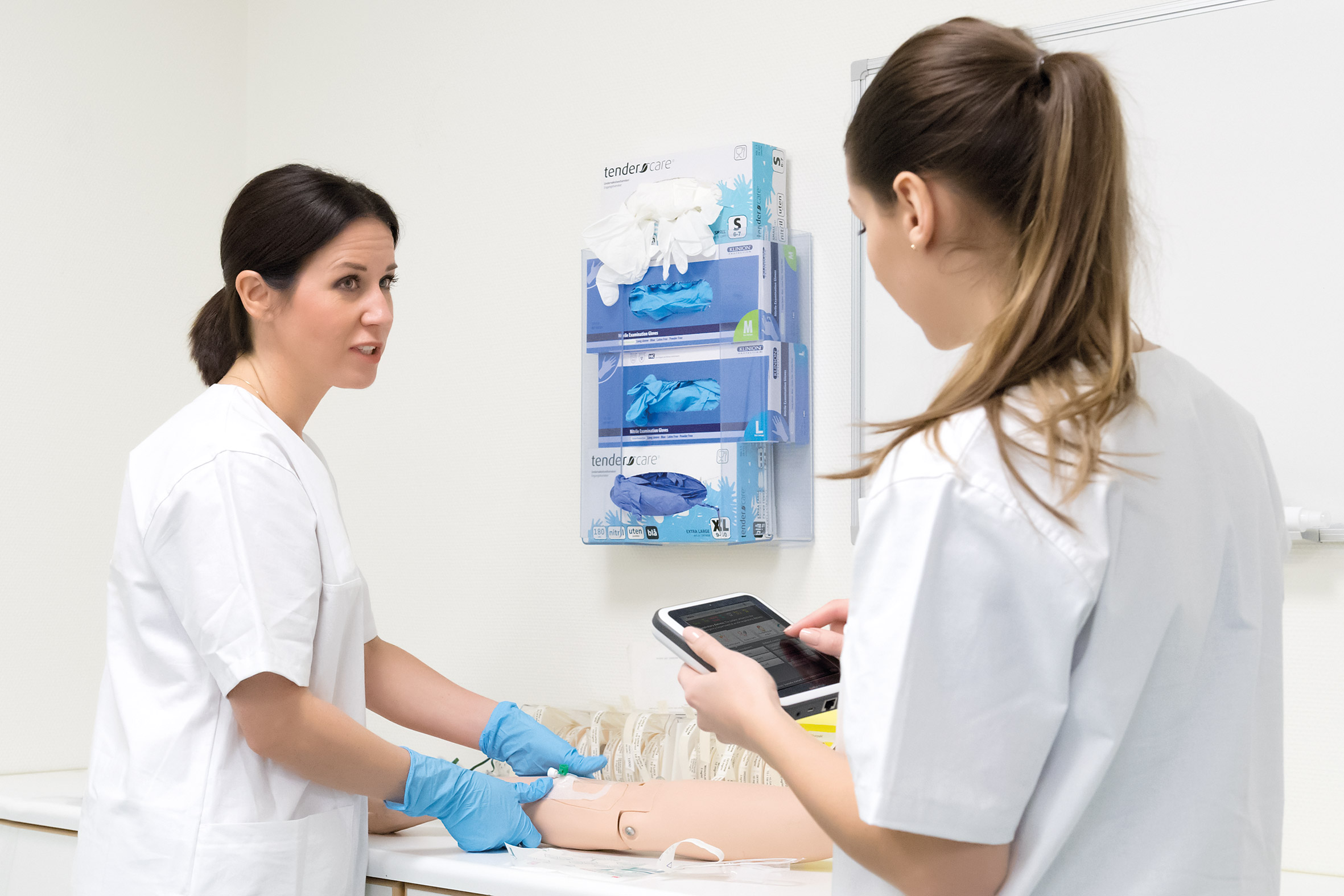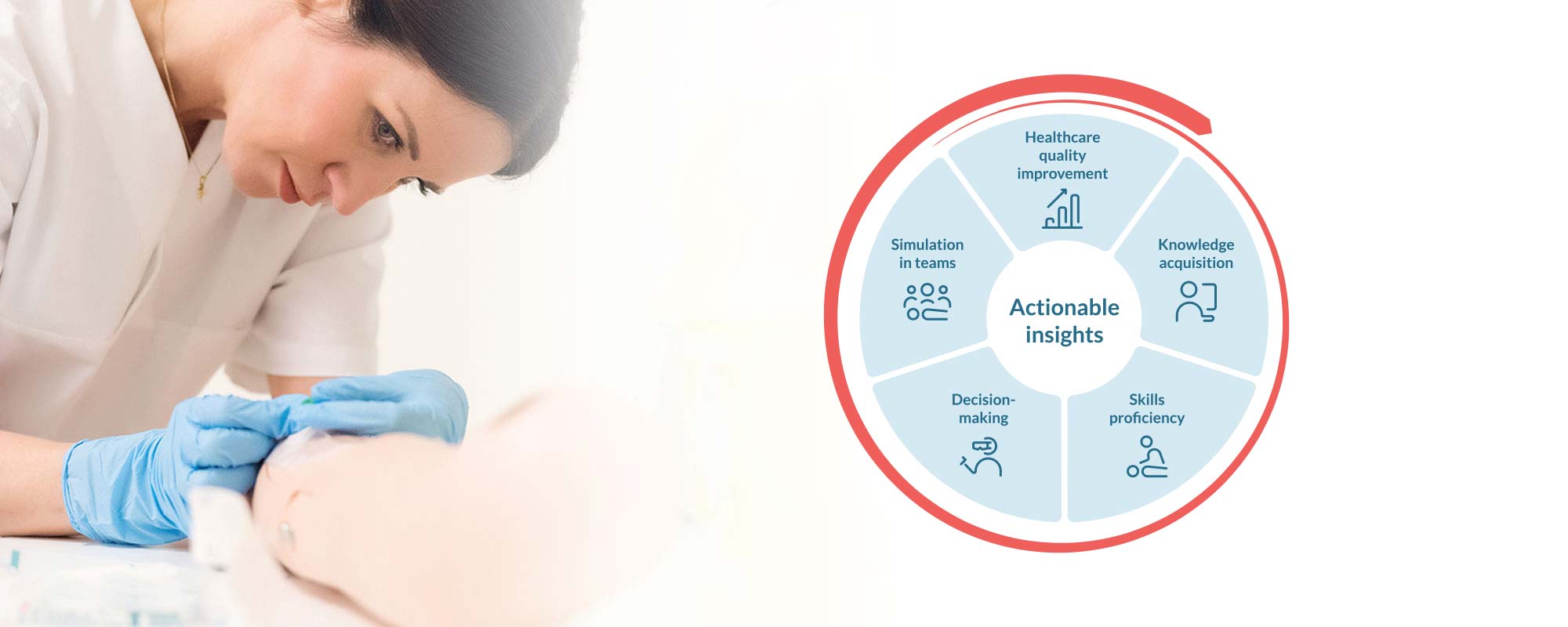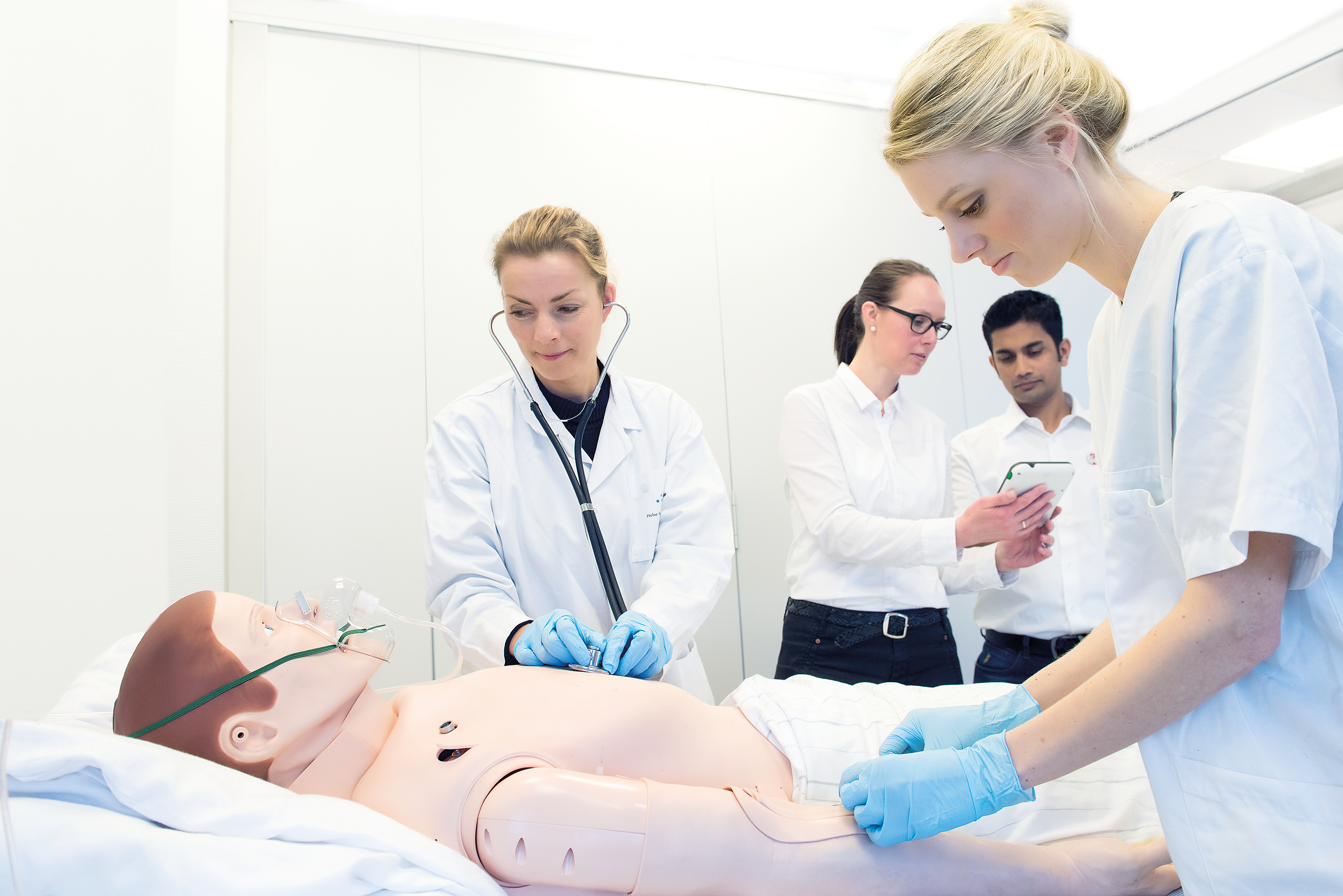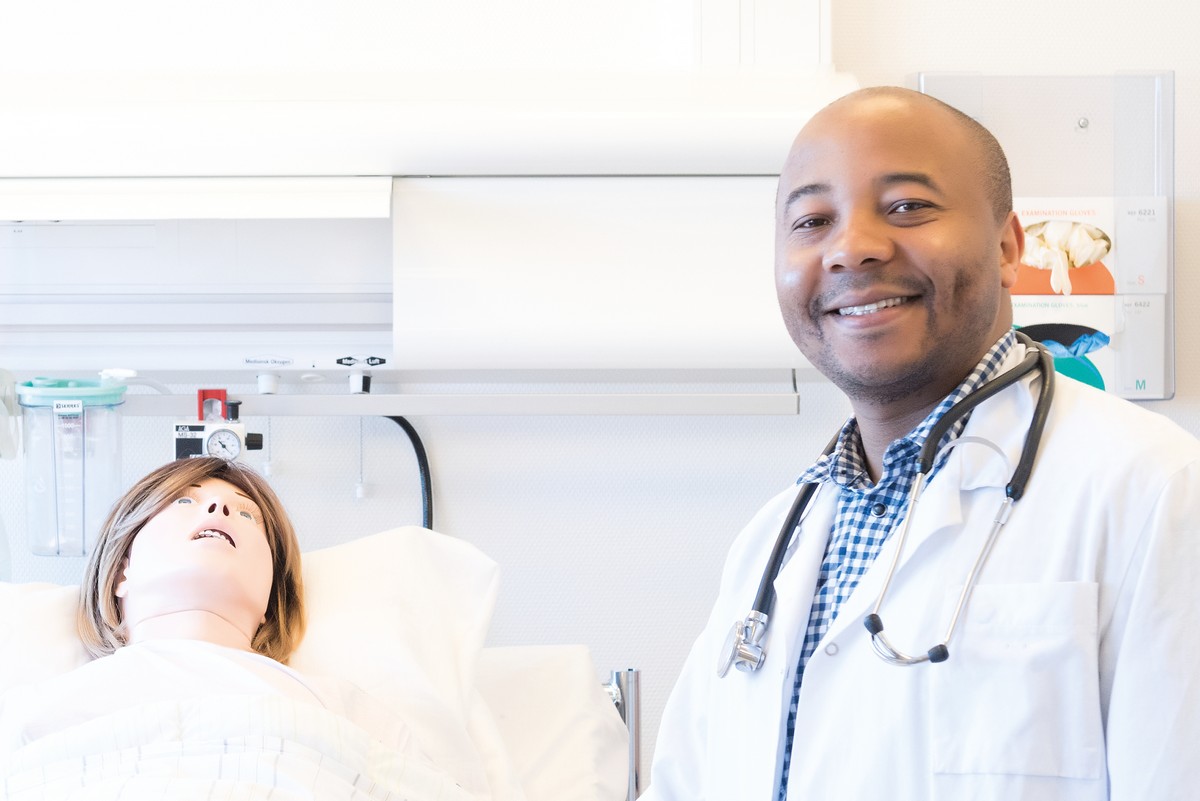Formalized learning together with peers is an effective and efficient way of learning or practicing key skills and procedures. At a time when resources are stretched and demands upon staff are increasing, peer-to-peer learning offers students the opportunity to take advantage of a valuable resource – each other. This method also enables more practice than traditional teaching and learning methods as it is not dependent on having a facilitator trained in simulation and debriefing present.
Peer to peer simulation allows members of small groups to guide one another through different sets of formalized training scenarios. The scenarios are standardized, often with built-in scoring and feedback, to allow the groups of learners to practice on their own until they feel competent and confident. This is known as “Mastery Learning” or “Deliberate Practice”. Such learning is beneficial also because normally involves learners coming from the same cohort, or colleagues on a ward. It is not a substitute for teaching and activities designed and conducted by staff, but complements the teaching and learning activities and enhances the quality of overall education.




